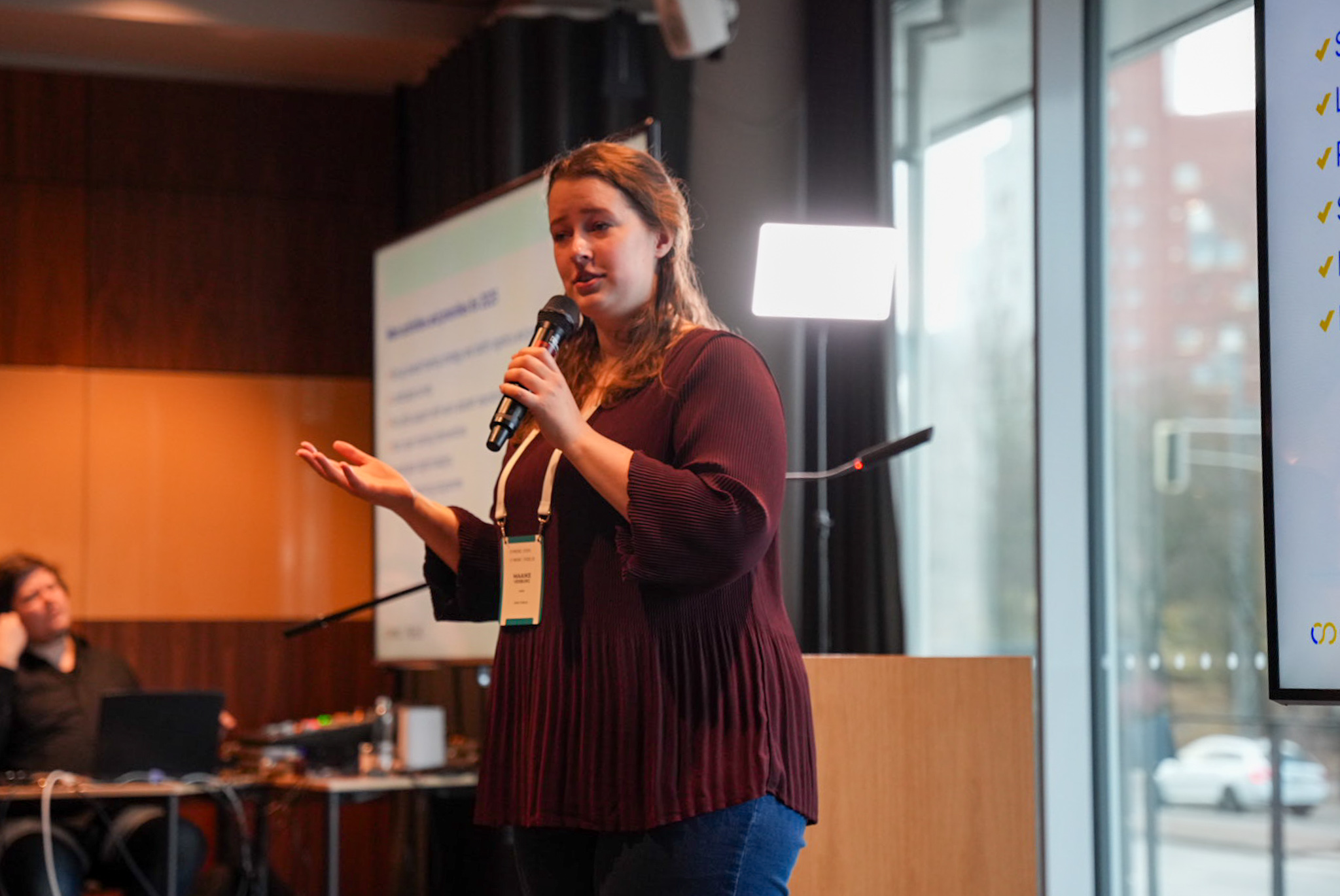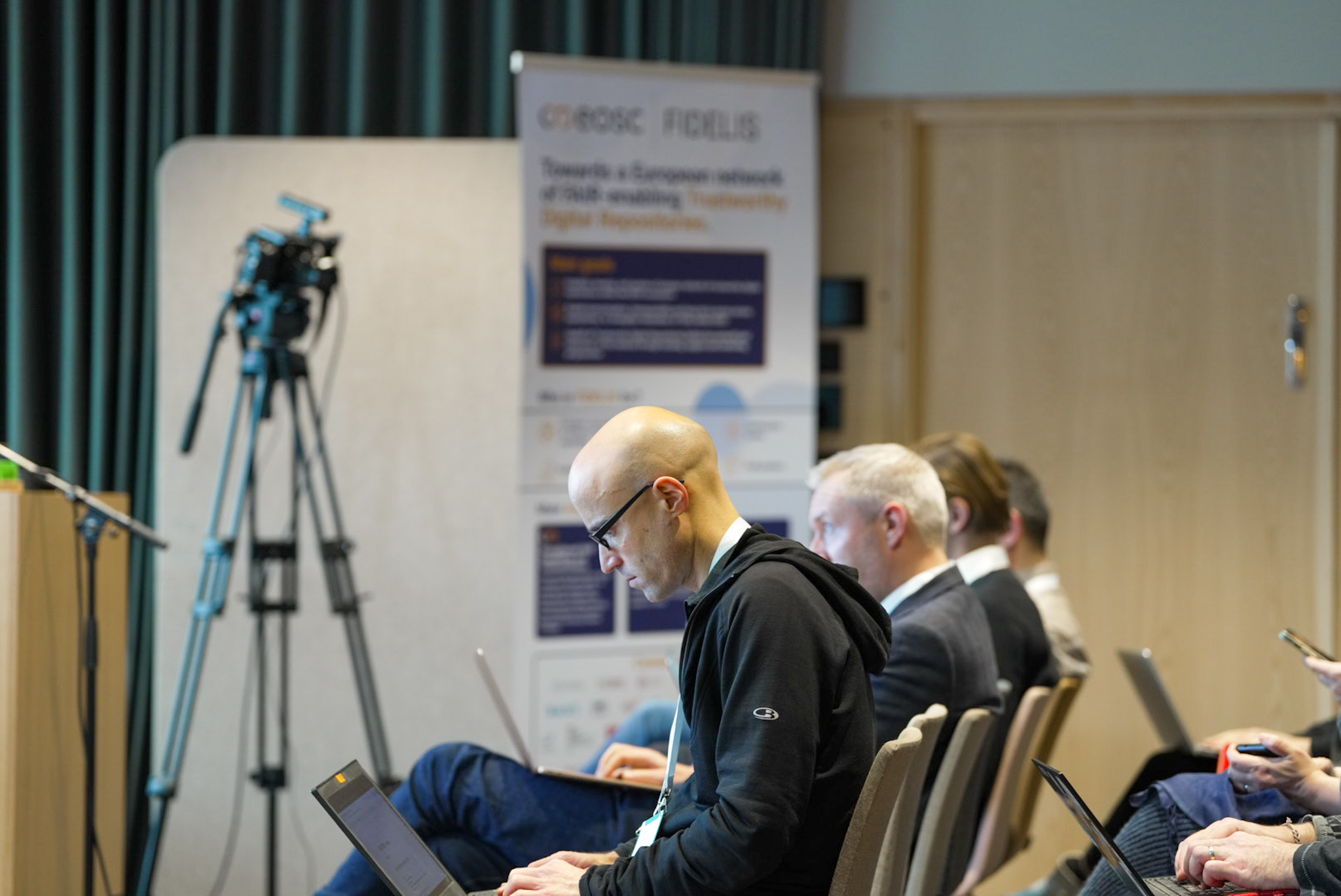FIDELIS Network for TDRs
Strengthening the backbone of open science
Trustworthy Digital Repositories (TDRs) are a critical pillar of the research ecosystem, ensuring secure and sustained access to digital research objects. They serve as essential infrastructure in the research data lifecycle, enabling researchers to share, access, and reuse data and other digital objects while ensuring the long-term preservation of research outputs. As the European Open Science Cloud (EOSC) continues to expand, the role of TDRs grows ever more significant, facilitating active preservation and ensuring that digital research objects maintain their FAIR (Findable, Accessible, Interoperable, and Reusable) characteristics over time.
Become a provisional FIDELIS network member

Building a resilient and inclusive network
From day one, the FIDELIS project is anchored in a diverse and extensive network of repositories, spanning multiple disciplines and geographic regions. This solid foundation enables the project to pilot its initiatives in real-world settings, engaging with early adopters who will play a key role in shaping and expanding the FIDELIS Network. The project’s hands-on, iterative approach ensures that best practices are tested, refined, and widely adopted.
To support repositories in their transition toward trustworthiness and FAIR compliance, FIDELIS will develop common frameworks for repository policies and workflows. These frameworks will provide guidance and structured support, helping repositories implement and sustain best practices in data management. Furthermore, a peer-to-peer support system will facilitate knowledge exchange and capacity building, ensuring that TDRs can learn from one another’s experiences and challenges.
Moreover, FIDELIS prioritises co-creation, actively engaging repositories in shaping the Network. By maintaining a user-centric approach, the project ensures that the Network evolves in alignment with repository needs and priorities. Repository owners will be invited to provide input on requirements and feedback early on and during the integration process.
What are the benefits of joining the FIDELIS Network?
As the provisional members of the FIDELIS Network, you can contribute in shaping the future of TDR in Europe. Some of the benefits include :
- Shape the FIDELIS Network, its governance and sustainability.
- Engage in the pilot support offer in 2025. This offer will consist of various solutions – services, tools, methodologies, and policies – being provided by project partners, EOSC projects and provisional members of the network.
- Engage with the other Network members, hearing about future projects and relevant EOSC developments, and potentially meeting future project partners. Be among the first to learn about FIDELIS cascading grants for later support actions.
- Free membership until January 2027!
Interested in learning more about FIDELIS Network? Watch the introductory webinar recording.
The FIDELIS Network will be based on the needs of European digital repositories, offering a range of support and training opportunities in their work on becoming trustworthy and sustainable. If you want to learn how the FIDELIS Network can help your repository, revisit the first introductory webinar to the FIDELIS Network.

A high-Impact and long-term vision of FIDELIS
FIDELIS is driven by a long-term vision to build a healthy, vibrant, and self-sustaining network of TDRs that will strengthen the EOSC ecosystem. With over 200 digital repositories already connected through its partners, the project will leverage these existing networks to engage repositories across diverse disciplines, including Geosciences, Oceanography, Earth Science, Social Sciences and Genetics.
Beyond building expanding the network, FIDELIS will foster harmonization and interoperability among repositories, laying the foundation for an EOSC federation of TDRs. Through a structured training and support program, the project will also enhance the skills and capabilities of repositories, ensuring their long-term sustainability and increasing their impact within the broader research infrastructure.
European Expert Curation Network - EOSC EDEN
The EOSC EDEN Project will establish an expert curation network with representation from organisations, repositories (both generalist and specialist), collections, catalogues, and at various digital object type levels. Through this network, we will define and agree upon specific roles and responsibilities for curation tasks, including quality assessments (technical and standards compliance vs. scientific) and value assessments based on the purposes and intra- and cross-disciplinary reuse demands of data and other digital objects. During the EOSC EDEN project, two curation network events will be organised for intensive learning and discussions with curation and digital preservation specialists.
The first European Expert Curation and Digital Preservation Network Bootstrap Workshop
The first network event will take place on October 1st and 2nd, 2025, in Leuven and is organized as a hands-on workshop to:
Lay the foundations of the network.
Share expertise, experiences, and best practices.
Build a collaborative vision for advancing data curation and digital preservation across disciplines and repositories.
See the event announcement and call for applications: Shape the Future of Research Data Curation in Europe!
More information about the emerging network, including details on how to join, will be made available following the first network event in October 2025. In the meantime, if you have any questions or would like to request additional information about the network, please feel free to reach out to us:
📧 Email: pmo.eden@postit.csc.fi
🌐 Website: https://eden-fidelis.eu/
Background and Ambition
Curation is a key factor in securing the digital preservation of digital objects over the long-term and is therefore an essential part of the services offered by most Trusted Digital Repositories (TDRs). Due to the complexity and diversity of research objects, curators need to rely on robust guidelines and established workflows to ensure digital objects are accurately and appropriately cared for. However, due to the continually changing digital and technological landscapes, guidelines and workflows are not sufficient – effective curation requires ongoing knowledge exchange with, and support from peers, to build from a larger experience base. To this end, some repositories and archives are both engaged in and actively support different types of networks. However, there is considerable variation across disciplines and data types when it comes to available network support and how focused these collaborations are on digital preservation and data quality aspects. In addition, national-level curation networks initiatives exist and are being established to build shared knowledge resources, but more extensive, multi-national curation networks can ensure more thorough and persistent enablement of long-term digital preservation.
EOSC EDEN aims to create a curation expert network and will work to facilitate the sustainable embedding of the created curation network into existing organisational contexts to ensure the continued maintenance and extension of the assets produced by the project after its conclusion.